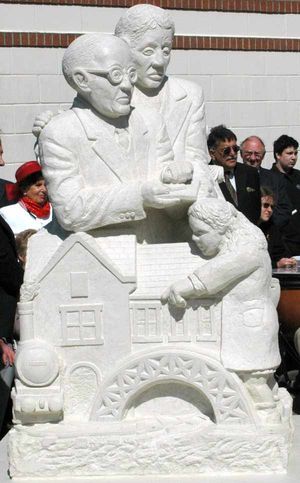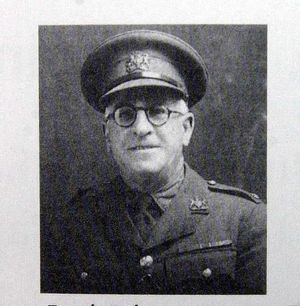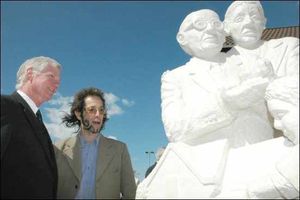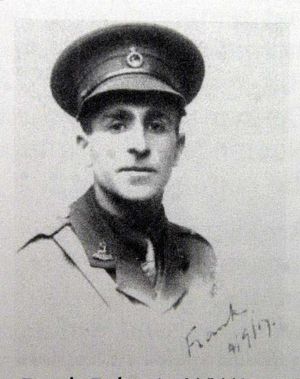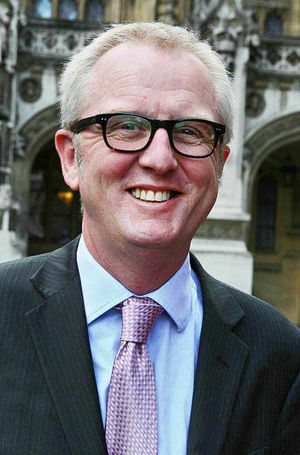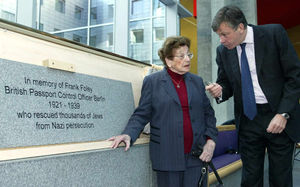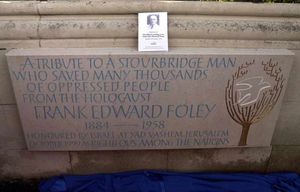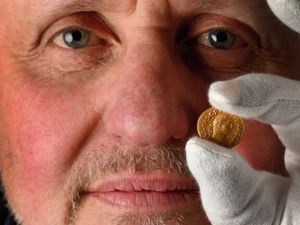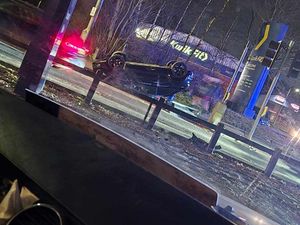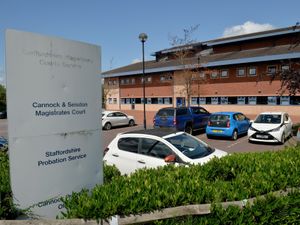Call for statue to Black Country's 'British Schindler' who saved lives of 10,000
He risked his own life to save thousands of Jews from the horrors of Nazi Germany.
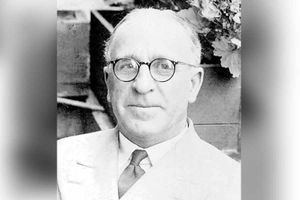
British spy Major Frank Foley used his position as a passport control officer to bend the rules and venture into concentration camps to help Jews to escape.
Dubbed the 'British Schindler', he also hid Jews in his own home until they were ready to make their escape.
It is believed he saved more than 10,000 Jews from the gas chambers during the Second World War .
Now an MP is campaigning for lasting memorial to the war hero in the Black Country in honour of his bravery and achievements.
Following the war he retired to Stourbridge where he lived at Eveson Road in Norton until his death in 1958.
There is already a statue dedicated to Major Foley is home town of Highbridge in Somerset - but there is nothing on a similar scale in the Dudley borough.
There is a memorial plaque at the entrance to Mary Stevens Park in Stourbridge but Dudley North MP Austin believes a local statue would be a fitting tribute to Major Foley as well as helping to teach younger generations about the Second World War and the Holocaust.
He said Major Foley, who also served in the First World War, was a 'true local hero' and his name deserved to be recognised and celebrated.
Born in 1884, he worked for the Foreign Office and became Head of the British Passport Control Office in Germany in the 1930s.
As he watched Adolf Hilter's rise to power, he realised Jewish families were vulnerable have witnesses the many anti-semitic measures introduced by the Nazis and the effect these had on the every day lives of Jews.
During his work as a passport officer, he interpreted the rules on visas loosely and also forged passports enabling Jews to escape to Britain and Palestine, breaking British laws
And he also broke many Nazi laws such as entering concentration camps and presenting visas to the camp authorities so that Jews could be freed to travel. Mr Foley used his secret service skills to help them obtain false papers, forged passports and visas.
Many of those who fled never knew who had saved them. It was only years later that the scale of his life-saving came to light.
"When other European countries were sending Jews to concentration camps, Britain provided a safe haven for tens of thousands of refugees," said Mr Austin.
"I think this period defines what it means to be British – our unique response to the Holocaust and role in the War gives us the right to claim a particular attached to the values of democracy, equality, freedom, fairness and tolerance.
"Frank Foley embodies these values. His refusal to stand by when people were being singled out because of their race and religion marks him out as a true local hero, and his name should be one that everyone in Dudley recognises and celebrates," added Mr Austin.
Major Foley's efforts were never recognised during his lifetime but in 1999, his actions resulted in him being recognised as 'Righteous Amongst the Nations' at Yad Vashem in Israel - the same award granted to Oskar Schindler.
In 2004, the 120th anniversary of his birth, a plaque was unveiled in his honour at the British Embassy in Berlin. Among those who travelled to take part in a special ceremony was Elisheva Lernau, 91 at the time, who had been rescued by Major Foley.
Speaking at the ceremony, she said: "His name is written on my heart. I owe my life to this man I never met, a man of humanity in a time of unparalleled inhumanity."
In 2010, Major Foley was posthumously named a British Hero of the Holocaust by the Government.
In September the Prime Minister announced the creation of a Holocaust Commission to establish a permanent Holocaust memorial along with educational resources.
David Cameron has asked for suggestions on what form a national memorial should take.
Mr Austin has responded to the consultation saying that in addition to a national memorial or museum, there should be regional memorials to support lessons about the Holocaust in schools across the country.
Mr Austin said: "We have the memorial by the gate to Mary Stevens Park, but I would like to see a statue to Frank Foley so that people students right across the Black Country can come and learn about him and our country's role in fighting for freedom, democracy and tolerance against Nazi Germany."
